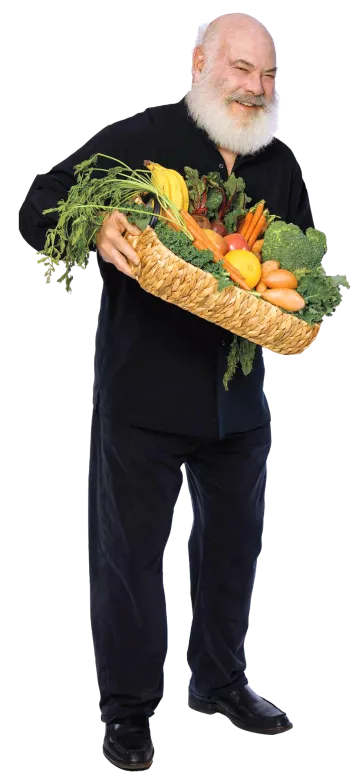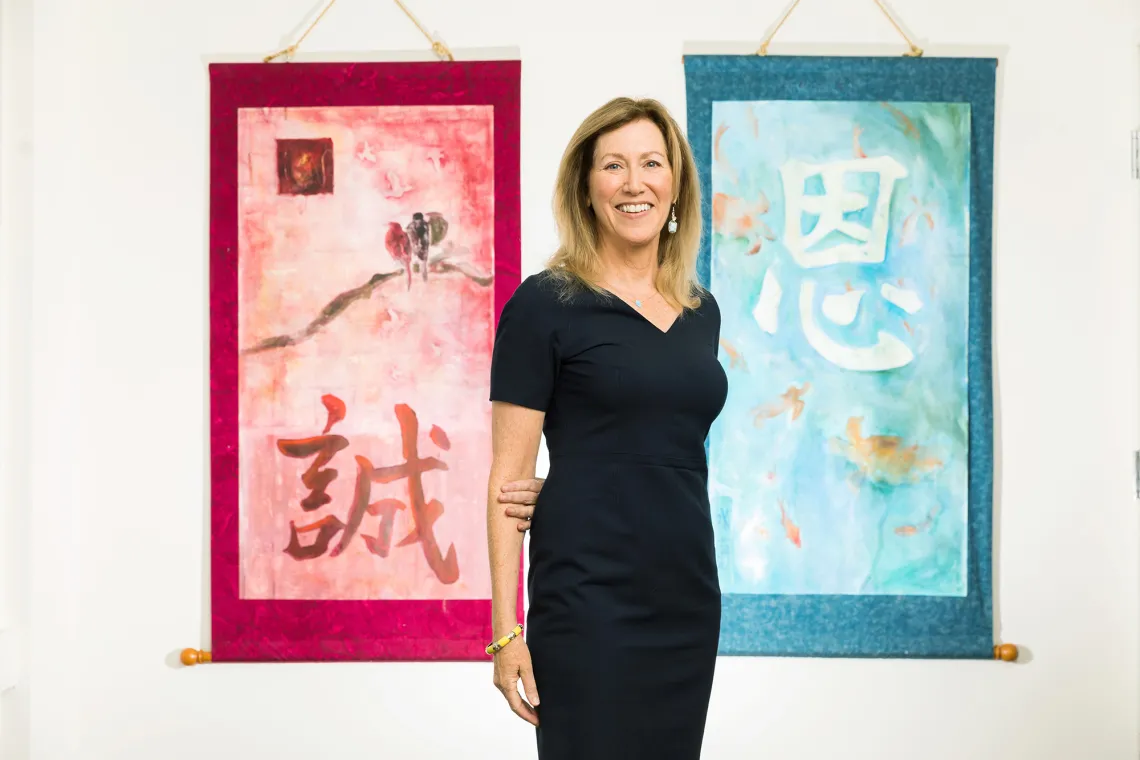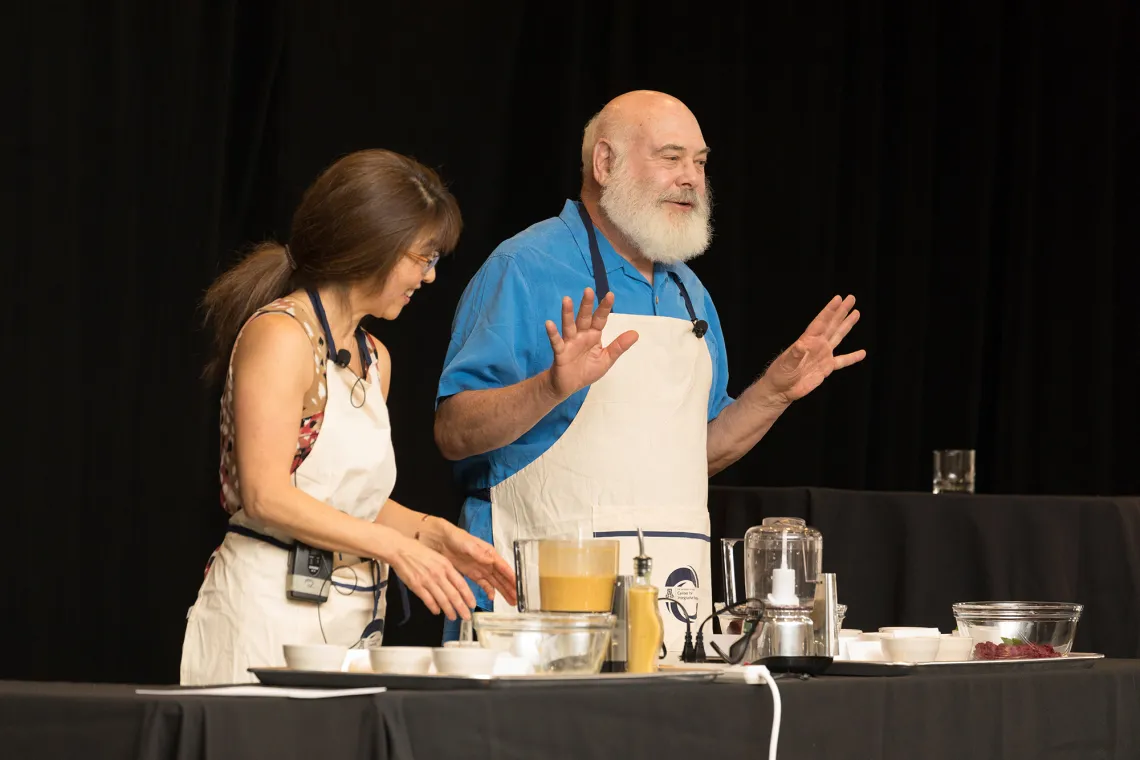Modern Medicine Trailblazers
Celebrating 25 years of the Andrew Weil Center for Integrative Medicine
To appreciate the significance of the Andrew Weil Center for Integrative Medicine, which celebrates its 25th anniversary this year, is to know the serendipitous journey of its founder, who is changing modern medicine at the University of Arizona and beyond.
In March, the UA Center for Integrative Medicine was renamed in honor of Dr. Andrew Weil in recognition of the $20 million in gifts he has made to the university. Just as significant as his philanthropy, though, is his contribution to the health care movement he and his team see as the way of the future — one that is patient-focused and emphasizes natural and preventative medicine, rather than excessive reliance on medication.

Andrew Weil / photo courtesy of University of Arizona College of Medicine
The aim is achieving optimal health and lower health care costs by balancing the mind-body connection.
“I feel confident that one day we’ll be able to drop the word ‘integrative’ and it will just be good medicine,” Weil said during the press conference to announce the center’s renaming in celebration of his life’s work.
Weil’s healing-oriented philosophy has evolved over several decades. It started with a strong interest in plants, inherited from his mother, and a desire to travel and learn about other cultures. It grew more rigorous during his undergraduate years, when he studied medicinal plants, and was amplified through travel in the Amazon and experimentation at Harvard Medical School.
That experimentation was not without controversy. In the 1960s, he was first to conduct controlled, double-blind studies on marijuana in humans. But those who know him say he was ahead of his time. He had the courage to talk about changing medicine in an unconventional way — and the medical degree to back his opinions.
A lifelong student, Weil found inspiration in a number of mentors who were leaders in their fields. In college, he studied under Richard Schultes, considered by many to be the father of modern ethnobotany, the study of medicinal plants. Weil credits Schultes with giving him a grounding in nature and the healing power of plants.
Following travels in South America, Weil arrived in Tucson in 1973, intending to stay for a few days — but car trouble kept him here long enough to fall in love with the Old Pueblo. In Tucson, he discovered Dr. Robert Fulford, a pioneer in cranial osteopathy and holistic healing, which emphasizes treating the mind, body and spirit as a whole. Fulford deepened Weil’s belief in proper breathing as crucial to good health.
Not intending to practice medicine, Weil began writing about natural and preventative medicine. By then he was a published author and one of the foremost experts on marijuana.
“Patients started showing up on my doorsteps,” Weil says.
“I gradually discovered that I was good at several things: diagnosis, which I do mostly by listening to people, and also I was good at being a therapeutic marriage broker. I can arrange happy alliances between patients and practitioners.”
Dr. Jim Dalen, then dean of the medical school at the UA, later vice president for health sciences and currently executive director of the Weil Foundation, supported Weil in establishing the nation’s first formal training program in integrative medicine in 1994.
At first, the self-sustaining program began with a two-year residential fellowship for four people who finished studying and decided to do additional work. “When Dr. Weil started and there were four doctors, people would ask, how much difference can you possibly make training four doctors a year?” says Dr. Victoria Maizes, executive director of the Andrew Weil Center for Integrative Medicine, who has known and worked with Weil for 21 years.

Dr. Victoria Maizes / Chris Richards photo
With the curriculum developed for the fellowship, the center began implementing online training, through which it now trains 160 physicians a year. The Integrative Medicine in Residency program is a 200-hour interactive curriculum that has expanded to 86 sites internationally and has graduated more than 1,500 alumni. In total, UA-trained integrative medicine physicians have served an estimated 8 million patients.
“His goal was to change medicine, and the route by which to change medicine would be medical education. Over time, we trained more than 30 residential fellows and 2,000 overall, who are in leadership roles in academia and health care systems.”
The integrative medicine center also was a key cofounder 20 years ago of the Academic Consortium for Integrative Medicine and Health, which advocates for making integrative medicine a required part of all medical training. The consortium now has more than 70 member institutions engaged in clinical, educational and research programs in integrative medicine — more than half of all medical schools in the U.S.
Much more is envisioned on many fronts — educational, research, policy — thanks to the strength of the team Weil has assembled in Maizes and Dr. Esther Sternberg, director of research and inaugural holder of the Andrew Weil Endowed Chair for Research in Integrative Medicine.
The integrative medicine center is developing landmark research to help impact policy, and it is making educational resources available to the public. For example, it is currently piloting CanHEAL (Cancer Health Empowerment, Assistance, and Learning), an online integrative care toolkit offering support and information to those recently diagnosed with cancer. Another goal, with efforts underway, is to support further outreach to underserved populations who typically have limited access to health behavior information.
Sternberg, who also is the founding director of the UA Institute on Place, Wellbeing and Performance, is developing far-reaching collaborations to bring the center’s expertise in integrative health across the university. In the seven years she has been with the center, Sternberg has collaborated in various ways with the College of Science, Department of Psychology and the Colleges of Engineering, Nursing and Agriculture and Life Sciences, as well as BIO5 and Data Science, among others.
One current project is a wellness app being piloted with the athletics department, in which student-athletes choose specific areas to improve. In another project, Sternberg — author of “Healing Spaces: The Science of Place and Well-Being,” which explores environmental influences over the brain and the body — is working with the College of Architecture, Planning and Landscape Architecture to develop methods to measure the impact that various aspects of the built environment have on different aspects of well-being
and performance.

Dr. Andrew Weil demonstrates easy and healthy cooking options during a conference of medical professionals at Westward Look Wyndham Grand Resort and Spa. / Chris Richards photo
“We’re also impacting policy, which is very important,” Sternberg says. “To do that you need ammunition: You need the data. If you’re going to convince decision-makers to support integrative medicine, you need the data.”
Weil’s team says that this patient-focused medicine can serve to inspire and fulfill a new generation of physicians. “So many times, doctors who are taking care of patients are exhausted, simply burned out,” says Sternberg, who lectures to many of the educational programs the center runs. “When the fellows come here, often 10 years after graduation — early to mid-career — they are burned out already. By the time they leave the fellowship they are infused with a renewed passion for this career that they have chosen, medicine.”
“It is the way the center trains health professionals; it’s the philosophy of what health is and how you deliver health. It’s really inspiring to see the change in these health professionals, from when they start and when they leave. And it is inspiring to work with Dr. Weil and be a part of the team that is making this happen.”
“Suddenly, when you are looking at the impact, it has become significant,” Maizes says. “In the past, when Dr. Weil traveled people asked where to find a doctor who practices integrative medicine. It was hard to say. Now, we have graduates in every state and in many, many countries.
“We have trained over 100 oncologists through our fellowship, for example. We have trained gastroneurologists in leading programs, so it is now possible to find the right people who can take care of both more routine and more complex situations.
“Dr. Weil’s work has really changed medicine in some very significant ways.”
One of the most exciting next steps for the Andrew Weil Center for Integrative Medicine is the anticipated opening of its first primary care clinic in Tucson, in partnership with Banner Health. Scheduled to open in 2020, the clinic has recently started advertising for integrative primary care physician openings, a first step in establishing a model the Weil team believes will be sustainable, profitable and replicable — a new model for health care in the country.
“We’ll always be known for being the birthplace of this movement,” says UA President Robert C. Robbins when praising Weil’s life work and his decision to have the university as its epicenter.
